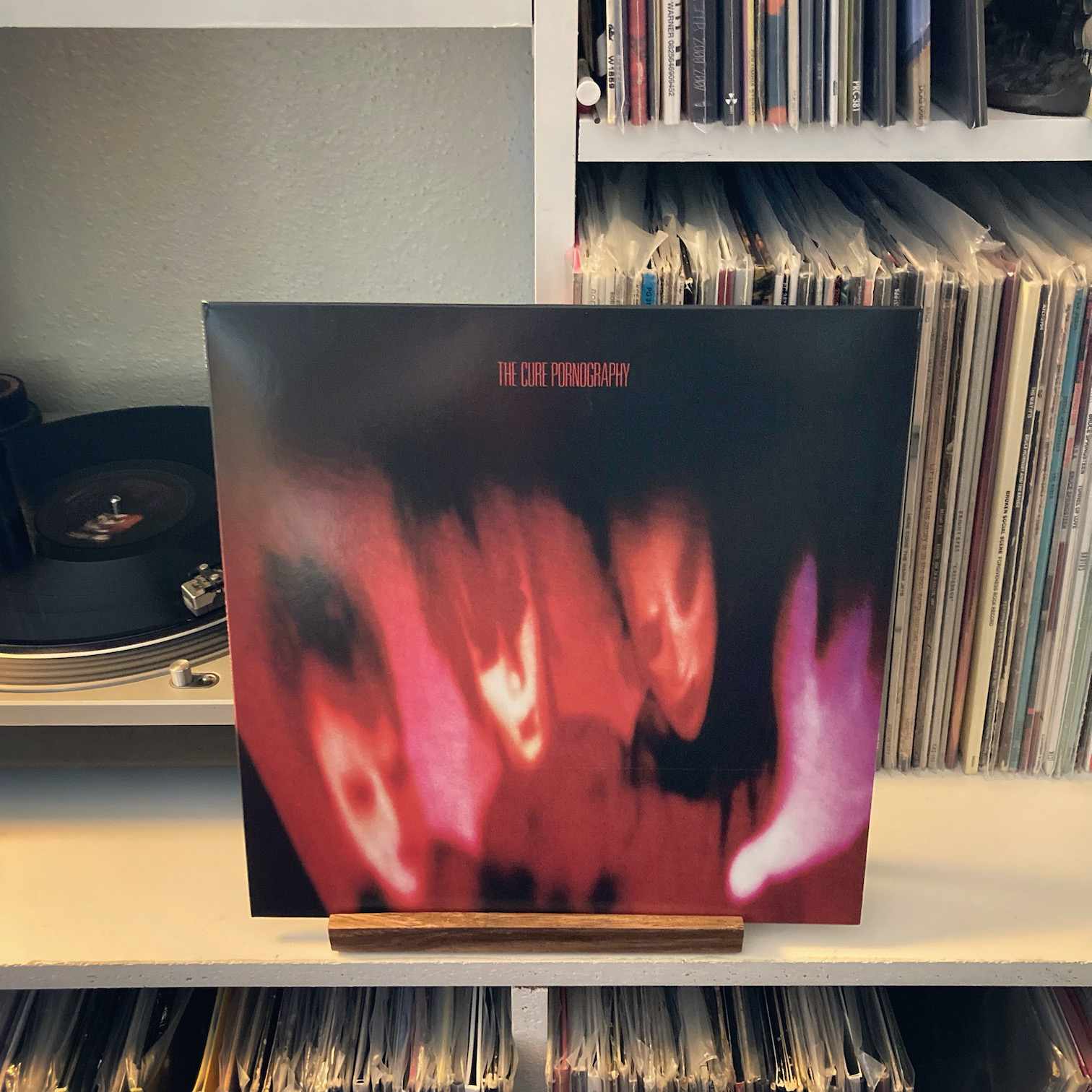
It’s taken me until my mid-30s to realize something that should have been obvious: the Cure really is one of the best bands in the world. Yet approaching their immense discography now, and not as a teenager when I no doubt would have spun their albums on repeat, has proven to be a daunting task.
Of course, I’ve loved Disintegration for a few years now, but sorting through the rest of it, I feel rudderless in a sea of gothy pop songs. Recently, I decided almost on a whim to order a copy of Pornography, their fourth record, and one of their darkest.
And it’s appropriately titled: like pornography, this record is almost exploitatively intimate, often uncomfortable, yet basely alluring.
Robert Smith has retrospectively referred to Pornography as a spiritual predecessor to Disintegration (he considers both parts of a trilogy concluded with 2000s critically panned Bloodflowers). It’s an obvious conclusion to draw by listening to them: both albums traffic in darker atmospheres and more desperate songwriting than the lipstick smeared pop sensibilities that inform their more popular singles. Both were written out of deep periods of depression and troubled by Smith’s rampant drug abuse.
But Pornography also represents the culmination of what has since been considered the Cure’s (first) dark period, beginning with the album Seventeen Seconds and followed by Faith, then this record. After this, the band would move on to writing brighter pop songs.
Listening to it, it makes sense why they would do an about-face after this record. Pornography feels like gazing into the abyss—had they dwelt here much longer, it might have swallowed them whole. This is the sound of a soul-crushing despair that nearly destroyed the band. Not just musically either—the sessions were so destructive that bassist Simon Gallup, whose plodding basslines are so integral to the sound of this record, left the band after this (he would rejoin for Head on the Door).
But for all its harshness and murk, this album is absolutely thrilling. The gloomy haze of the soundscapes are punctuated by Smith’s voice, a yelping tenor so wounded and alarming that you can’t help but cling to every word. On the icy “One Hundred Years” he opens the album with the existential missive, “it doesn’t matter if we all die!” On “A Short Term Effect” he meditates on drug use in the metaphor a bird falling from flight and dying on impact. The pounding single “The Hanging Garden” finds him trying to survive an erotic nightmare of animalistic sex (said Smith of the song, “[it’s] something like about the purity and hate of animals fucking,” whatever that means). On “The Figurehead” he ruminates on the hollow pleasures of his success, eventually crying out, “I will never be clean again.” On the title track, he caps several verses of destruction and murder with the album’s only ray of hope: “I must fight this sickness / Find a cure / I mist fight this sickness.”
His morbid ruminations would come across as hamfisted as diary-scrawled adolescent poetry if it weren’t for the music though. Percussion is provided by both skittering drum machines and aggressive tom figures from Lol Tolhurst. Gallup’s bass is modulated and dark, ever-present beneath Smith’s noodly guitar and waves of synths. From a production standpoint, the band sounds like they’re playing in an aircraft hanger. Everything is drenched in reverb and echo, giving an aural component to the stark isolation shown in the lyrics.
In many ways, the album is filled with contradictions. It’s dark and challenging, filled with both sonic and lyrical ugliness. But despite its misery and misshapenness, it latches onto something in the listener. Even the dourest moments are somehow alluring, making an album filled with drug-fueled, depressive meditations on mortality and isolation not just palatable, but brilliant. And while I may have missed the ripest period of my life for this album to speak to me, I can appreciate it just as much in adulthood as I would have latched onto it in adolescence.